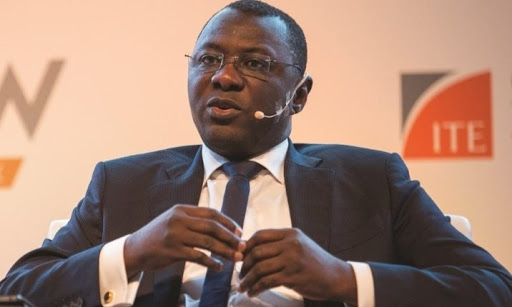Fiscal targets under threat — Suspension of electricity VAT creates GH¢1.8bn gap
The government’s 2024 tax revenue target of GH¢143.1 billion is under threat as it seeks to find alternative ways to make up for the potential GH¢1.8 billion shortfall created due to the suspension of the 15% VAT on residential electricity consumers.
As part of measures to rake in more revenue, the government introduced the VAT on electricity, with former Finance Minister Ken Ofori-Atta, in a letter dated January 1, 2024, directing the Electricity Company of Ghana (ECG) and Northern Electricity Distribution Company (NEDCO) to implement this new tax measure.
However, following stiff opposition from the Trades Union Congress (TUC) and the general public, the government suspended the decision to allow for further engagement with stakeholders.
“So there is a need to look at how to fill in that gap. We are having discussions among ourselves on alternative arrangements to fill that gap so we can achieve the fiscal target that we negotiated in the 2024 budget and the IMF programme,” he explained.
He said the ministry would update the public on the agreed alternative measures, possibly at the next Economic Update session.
Commitment to fiscal balances
Dr Amin Adam said the government was committed to keeping to the fiscal targets agreed in the budget and would, therefore, continue to aggressively pursue the other revenue measures to ensure that it stays within targets.
He said the government was pushing to create an enabling environment for the GRA to collect more revenues.
“It’s not just about creating new tax lines or increasing taxes but bringing efficiency to bear by ensuring that we reach everyone eligible to pay taxes,” he said.
On whether the International Monetary Fund has expressed any concern over the potential GH¢1.8 billion shortfall, Dr Amin Adam said, “Certainly, once you agree with the fund to achieve a certain fiscal target based on revenue and expenditure and you have a shortfall in revenue, they will certainly draw your attention to that”.
Responding to a question during her three-day visit to Ghana, the Managing Director of the IMF, Kristalina Georgieva, said the IMF respects the government’s right to make such decisions, adding that what the fund was interested in ensuring that the objectives of the programme are followed through.
She said there are different measures to achieve fiscal consolidation and as long as the government would stay on the path towards debt sustainability and fiscal sustainability, the IMF was satisfied.
“We will continue to have conversations with the government on what it will take to restore macro-economic stability. What we know is that the government cannot spend more than it generates so the government has to make ends meet. “There are different ways in which one can achieve the desired outcomes and we are engaging with the authorities on how to make sure that despite the development, the programme’s objective remains achievable,” she stated.
She said the upcoming review, which starts today, would present the fund with a good opportunity to engage more on that.
Tough time
The IMF boss noted that it would take some painful sacrifices from all Ghanaians to ensure that the country comes out of its current economic mess.
“My own country, Bulgaria, went through a much more severe collapse, with inflation increasing by 8,300% and the measures to bring back macro-economic stability were extremely painful for the majority of people.
“But the results of restoring sustainability have been remarkable and the income levels of the country have increased four times over the last decade since this painful episode,” She pointed out. She said fortunately for Ghana, the situation is not that dramatic.
“So my plea to the people is to look into their expectations if they want a strong economy, high living standards and a competitive country. These do not fall from the sky; they have to be based on strong fundamentals,” she said.



